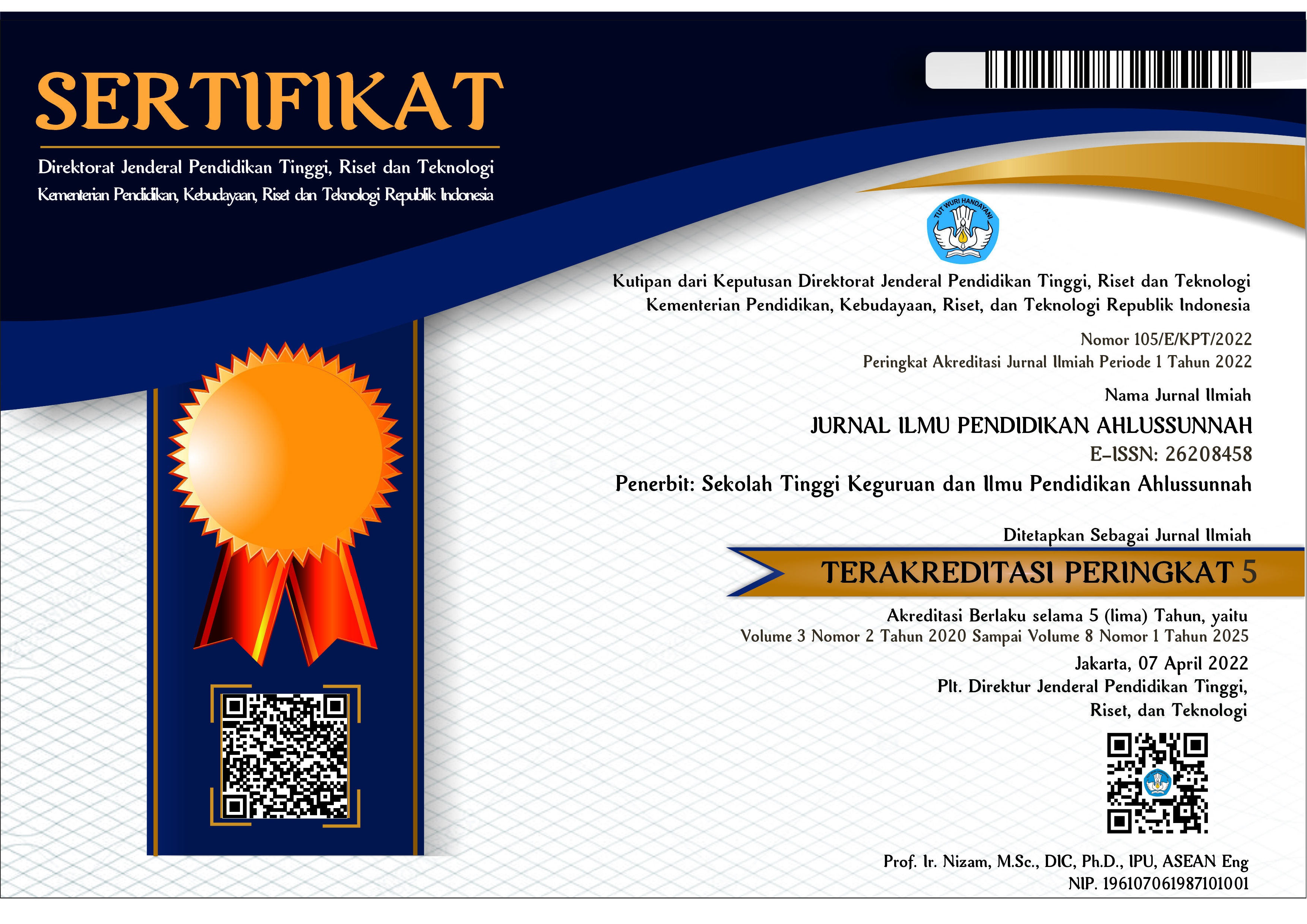APPLICATION OF GUIDED INQUIRY LEARNING MODEL ON MATHEMATICAL PROBLEM SOLVING ABILITY OF JUNIOR HIGH SCHOOL STUDENTS N 1 BASO
PENERAPAN MODEL PEMBELAJARAN INKUIRI TERBIMBING TERHADAP KEMAMPUAN PEMECAHAN MASALAH MATEMATIS SISWA SMP N 1 BASO
Abstract
The research aims to determine whether students' mathematical problem-solving skills using the guided inquiry learning model are better than students with conventional learning in seventh grade students at SMPN 1 Baso. This type of research is a quasi-experimental with a randomized control group only design. The research population was seventh grade students at SMPN 1 Baso which were divided into seven classes with 138 students. The sample in this study were 20 students in class VII1 as an experimental class and 20 students in class VII2 as a control class taken through simple random sampling. The research instrument was the final test in the form of essay questions related to mathematical problem solving abilities. The results of the final test will be used to test the hypothesis with the t-test with a = 0.05 and dk = 36. The analysis shows that the average problem-solving ability score in the experimental class is higher when compared to the control class. Based on the t test, it was found that students' mathematical problem solving abilities with inquiry learning models were better than students with conventional learning models.
References
Afandi, Ahmad. 2013. “Pendekatan Open-Ended Dan Inkuiri Terbimbing Ditinjau Dari Kemampuan Pemecahan Masalah Dan Representasi Multipel Matematis.” PYTHAGORAS: Jurnal Pendidikan Matematika 8(1): 1–11.
Atsnan, M F, and Rahmita Yuliana Gazali. 2013. “Penerapan Pendekatan Scientific Dalam Pembelajaran Matematika SMP Kelas VII Materi Bilangan ( Pecahan ).” In Prosiding Seminar Nasional Matematika Dan Pendidikan Matematika Pendidikan Matematika, , 429–36.
Kosasih, Nandang, and Dede Sumarna. 2013. “Pembelajaran Quantum Dan Optimalisasi Kecerdasan.” Bandung: Alfabeta.
Kuhlthau, Carol C., and Ross J. Todd. 2007. “Guided Inquiry: A Framework for Learning through School Libraries in 21st Century Schools.” Ided Inquiry: Learning in the 21St Century.
Meidawati, Yenny. 2014. “Pengaruh Pendekatan Inkuiri Terbimbing Terhadap Kemampuan Pemecahan Masalah Matematis Siswa SMP.” Implementation Science 39(1): 1–15. http://dx.doi.org/10.1016/j.biochi.2015.03.025%0Ahttp://dx.doi.org/10.1038/nature10402%0Ahttp://dx.doi.org/10.1038/nature21059%0Ahttp://journal.stainkudus.ac.id/index.php/equilibrium/article/view/1268/1127%0Ahttp://dx.doi.org/10.1038/nrmicro2577%0Ahttp://.
Suryabrata, Sumadi. 2008. “Metodologi Penelitian.”
Utari, Sumarmo. 2014. “Berpikir Dan Disposisi Matematik Serta Pembelajarannya.” Kumpulan makalah). Bandung. FPMIPA UPI Bandung.
Wina, S. 2008. “Strategi Pembelajaran Berorientasi Standar Proses Pendidikan Jakarta.” Kencana Prenada Media Group.
















